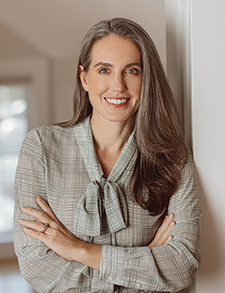 The month of May starts many transitions for current and future members of our field. Hundreds of medical students accepted for otolaryngology residency will graduate from medical school and move to a new town or state to start residencies. Hundreds of our otolaryngology residents will graduate after 5-7 years of residency training to transition to either a private practice, fellowship, or faculty position. This time is filled with excitement and nervousness for those who have achieved a major life goal and are now embarking on a new journey.
The month of May starts many transitions for current and future members of our field. Hundreds of medical students accepted for otolaryngology residency will graduate from medical school and move to a new town or state to start residencies. Hundreds of our otolaryngology residents will graduate after 5-7 years of residency training to transition to either a private practice, fellowship, or faculty position. This time is filled with excitement and nervousness for those who have achieved a major life goal and are now embarking on a new journey.
Explore This Issue
May 2024We start our lives in healthcare in a steady state of transitions for over a decade. High school is focused on getting into college. College is focused on getting to medical school. Medical school is focused on getting into residency, and residency is focused on fellowship and getting a job. Now it seems to be even more common for medical school applicants to work in healthcare prior to applying to medical school to increase the likelihood of acceptance, further lengthening this cycle of transitions.
The constant cycle of transitions can make it difficult to enjoy the present, to acknowledge the hard work that was required get to the current position, and to remember why you embarked on the journey at the start. Recently, I was walking into work with a colleague of mine whom I had not seen in a while. We both have high school and college age kids and started talking about the many transitions of life and noting that, after all those years of work transitions, the transitions often stop. You work at the same place, treat the same types of patients, and work with the same people. After all, that was the goal. But after what seems like a lifetime of well-planned transition points, there is no longer a mandated next step. Adding to this feeling of “What’s next?” is the fact that, as you mature as a surgeon, the clinical care that was difficult early in your career is no longer as challenging because you have now done those procedures hundreds, if not thousands, of times. This repetition provides very high quality outcomes to our patients but, for many of us, leads us to look for opportunities, even outside of our clinical practice, to continue to feel challenged and engaged in our field, and to feel that we are providing value. These opportunities may be clinical research, resident and fellow training, consulting, practice or institutional leadership, or a passion completely outside of healthcare.
For those soon-to-be graduates, congratulations and welcome to our community of otolaryngologists! Enjoy the journey, the friends you make, the skills you learn, and the patients you will care for. Remember to pause at times to remember your successes and why you became a surgeon. As a graduate of the University of Virginia (both undergrad and medical school), I was instilled with many of the Jeffersonian ideas on education very early in my educational journey. One of these ideas is that you are never a senior in your education. Continue learning, continue to strive to improve how you care for patients, and teach to pass along your knowledge